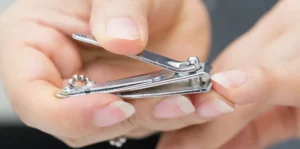AUGUAT 21, 2020
8 Mistakes You Don’t Want to Make When Healing from Infidelity

Finding out that your spouse or partner has cheated can be devastating, but dealing with the betrayal irrationally could worsen the pain and delay healing. If you’re wondering how to get over someone cheating on you, first ask yourself if you can forgive and trust them. If so, you need to start a dialogue or enlist the help of a couple’s therapist. To rebuild a relationship after cheating and heal from infidelity, do your best to avoid making these eight mistakes.
1. Assuming Your Relationship Is Irrevocably Broken
Don’t expect your relationship to go back to normal after cheating. Simply hoping things will go back to the way they were doesn’t address the underlying problems that caused the infidelity. But you can forge a new and perhaps even better relationship in time by communicating honestly and showing empathy to your partner.
2. Hanging on to Anger and Resentment
To rebuild trust after cheating, do your best to avoid lashing out in anger. Allowing negative emotions to consume you will only result in blaming, fighting, and holding a grudge against your partner.
3. Avoiding Intimacy
Wanting to avoid any type of intimacy after your partner has cheated is common and completely understandable, but it doesn’t help to heal the relationship. Both of you need to work on becoming emotionally intimate before you can achieve mutually satisfying physical intimacy.
4. Getting Revenge
Going out and cheating on your partner to “get even” is avoidance at its most damaging. This mistake leads to a higher level of distrust and leaves no room for remorse, reconnection, or repair of the relationship.
CALL FOR A FREE CONSULTATION5. Asking Unnecessary Details
Resist the urge to ask for intimate details of the affair, because this will only cause further pain. Ask broader questions like how long it lasted, and if there are long-lasting consequences, such as pregnancy.
6. Making Impulsive Decisions
Engaging in impulsive behavior isn’t healthy or constructive. It’s better to wait for shock, fear, and grief to subside before making important decisions you might regret later.
CALL NOW7. Lying or Partially Concealing the Truth
Not being truthful only prolongs the pain. The individual who cheated needs to be honest about underlying issues that led to the betrayal. Painful as it may be, the person betrayed should be open about how they feel and their possible role in causing these issues.
8. Trying to Rebuild Too Quickly
The problems that led to infidelity likely built up over the years, so expecting to repair your relationship quickly isn’t realistic. Instead, embrace the fact that trust, forgiveness, and rebuilding your connection is possible through incremental steps.
If you suspect your spouse is cheating on you, we encourage you to contact us to learn more about the DDC Infidelity DNA Test. While a DNA test may confirm your suspicions, knowing with certainty can help you take the first steps on the path to recovery.
About DNA Diagnostics Center (DDC)
DNA Diagnostic Center is the world leader in paternity and relationship testing. We serve healthcare professionals, government agencies, and individuals around the world to determine family relationships with trusted accuracy.
More Questions? Don’t hesitate to call us: we’re here to help!
CALL NOW




